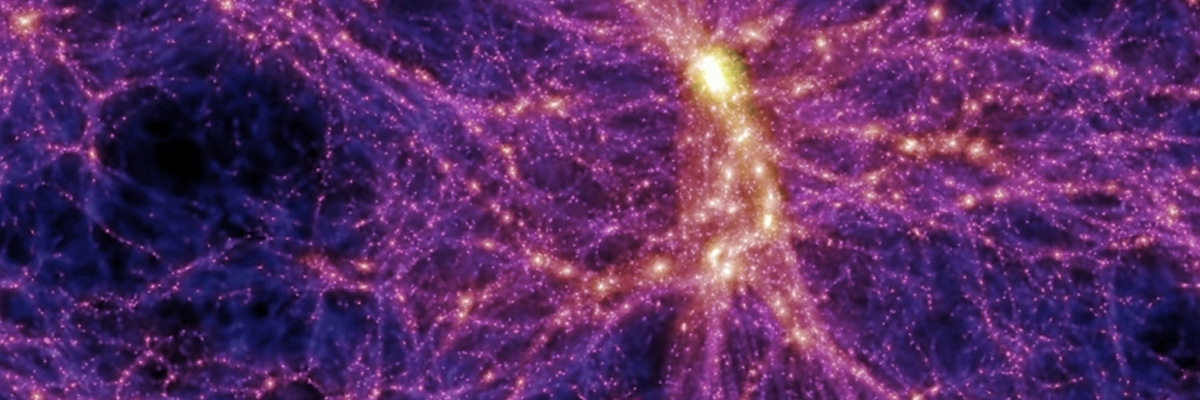Dark matter is a type of matter which makes up roughly 80% of the entire matter content in the universe. Unlike ordinary matter, dark matter does not emit, absorb, or reflect light, making it impossible to see and extremely hard to detect.
Without the inclusion of dark matter, the expansion of the universe would cause the abundance of ordinary matter to expand beyond the influence of gravity. This means that no stars or planets would have formed resulting in the universe remaining a cold, dark and lifeless place.
As well as allowing us to live, dark matter allows scientists to make accurate predictions of how the universe evolves over time. This is done by creating dark matter simulations of the universe and comparing them with the observational universe. However, simulating an isolated universe dominated by dark matter does not yield results exactly like observations. This is due to other factors in the universe such as energy from evolving stars and massive black holes known as “feedback”. It is key to incorporate feedback into the simulation in order to produce data that resembles our observed universe.
However some scientists do not believe in the existence of dark matter, and instead suggest that our understanding of gravity is incomplete. This would result in modifying Einstein’s theory of general relativity to re-describe how gravity behaves.
In order to determine which proposal is correct, experimental evidence is needed!







